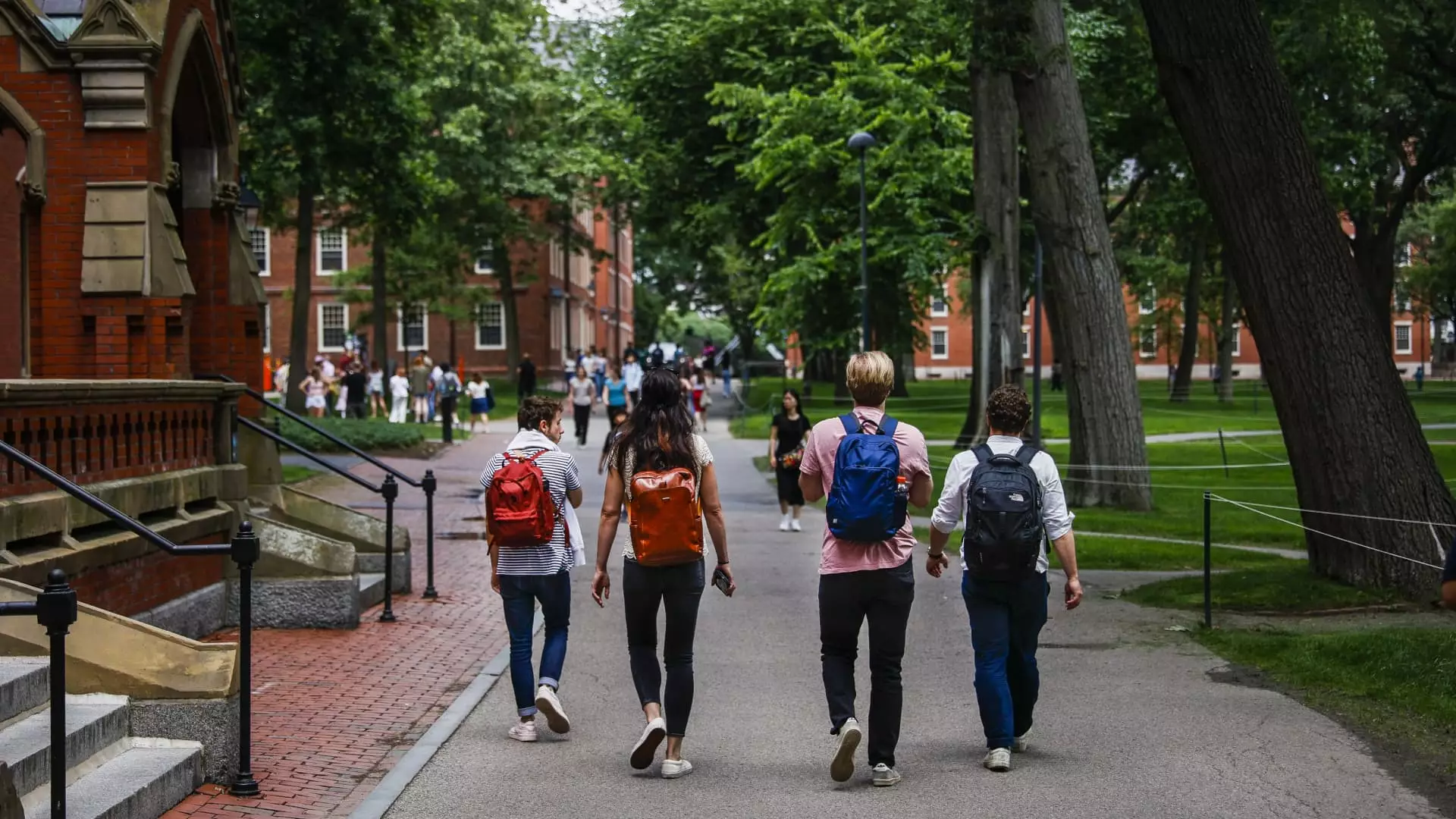At the intersection of education and politics, a dangerous battle unfolds between the Trump administration and one of the nation’s most prestigious institutions, Harvard University. The stakes? Not just the immediate fallout of international student visa policies, but a resounding economic riptide that could devastate local economies and endanger the fabric of American higher education. According to data from NAFSA: Association of International Educators, international students injected a staggering $43.8 billion into the U.S. economy during the 2023-24 academic year. In Massachusetts alone, nearly $4 billion in contributions were reported, accounting for over 35,000 jobs. This economic reality cannot be ignored; it illustrates a fundamental truth: education is not just a path to enlightenment, but a formidable economic engine.
Harvard: A Beacon of Global Talent
As an exemplar of this economic momentum, Harvard stands tall. International students make up a remarkable 27% of its total enrollment for 2024-25, a leap from 22.5% a mere decade ago. This influx of diverse talent isn’t merely academic; it translates into substantial monetary contributions. Over 6,000 international students attending Harvard are responsible for supporting more than 1,125 local jobs, further enriching the greater Boston economy by approximately $180 million annually. It is patently clear that the health of such an elite institution is inextricably linked to the vitality of its international student body. Yet, as the Trump administration’s strident immigration policies clash with the ideals of educational inclusivity, the walls of this iconic university face dangerous fissures.
Economic vs. Political Power Plays
The Trump administration’s demands aimed at curtailing international enrollments stem from a perceived need to consolidate control over academia and curb what they frame as foreign influence. In its escalating tension with Harvard, which has become a symbol of academic freedom and critical thought, the administration does little to understand the ripple effects of its stance. Bjorn Markeson, an economist from Implan, warns that a ban on international enrollment could destabilize a revenue stream that aids not only Harvard but also the broader economy. As dollars cascade through a community, an assault on one institution reverberates throughout the entire network, potentially harming many livelihoods—a misplaced gamble directed at a noble institution of learning.
The Wake-Up Call for Academia and Society
In defense of diversity and global perspectives, one must also recognize the role international students play in enriching the academic experience for their American peers. This is not merely about financial contributions or job support; it’s also about cultivating a robust and diverse learning environment. Robert Franek, editor-in-chief of The Princeton Review, articulates that international students enhance the educational fabric of universities, benefiting the entire student body. The closing of doors to these students not only jeopardizes revenue but also stunts the very innovation, creativity, and critical thought necessary to navigate a complex world.
Unraveling the Future
As uncertainty shrouds the future of international enrollment due to the Trump administration’s intense scrutiny, Harvard is caught in a precarious predicament. Following their refusal to acquiesce to demands from the administration’s Task Force to Combat Anti-Semitism, threats of bans and visa complications loom large. A federal judge’s temporary restraining order provides a brief respite but does nothing to diffuse an escalating political storm. Harvard’s President, Alan Garber, has emphasized the need for contingency plans, implying that a continued assault on international students would destabilize the very ecosystem upon which they thrive.
Moreover, with political leaders like U.S. Secretary of Education Linda McMahon calling for deeper scrutiny of foreign student admissions, this isn’t merely an academic issue; it’s a direct affront to the values of freedom and openness that underpin American society. When schools like Harvard must combat political agendas while nurturing a global community of learners, we must reckon with what kind of educational future we are constructing—and at what significant cost.
The overt politicization of international student policies is a formidable threat, not just to individual institutions but to the overarching ideal of education as a unifying force. In a world that is becoming increasingly interconnected, America must strive to remain an open society—a beacon of hope and opportunity that welcomes diverse voices instead of silencing them through fear and hostility.

